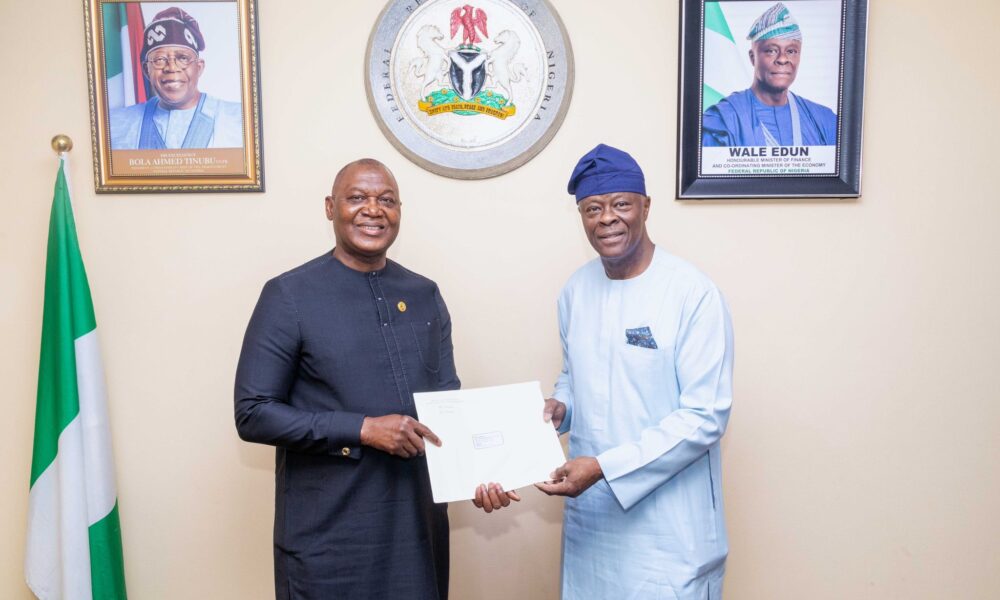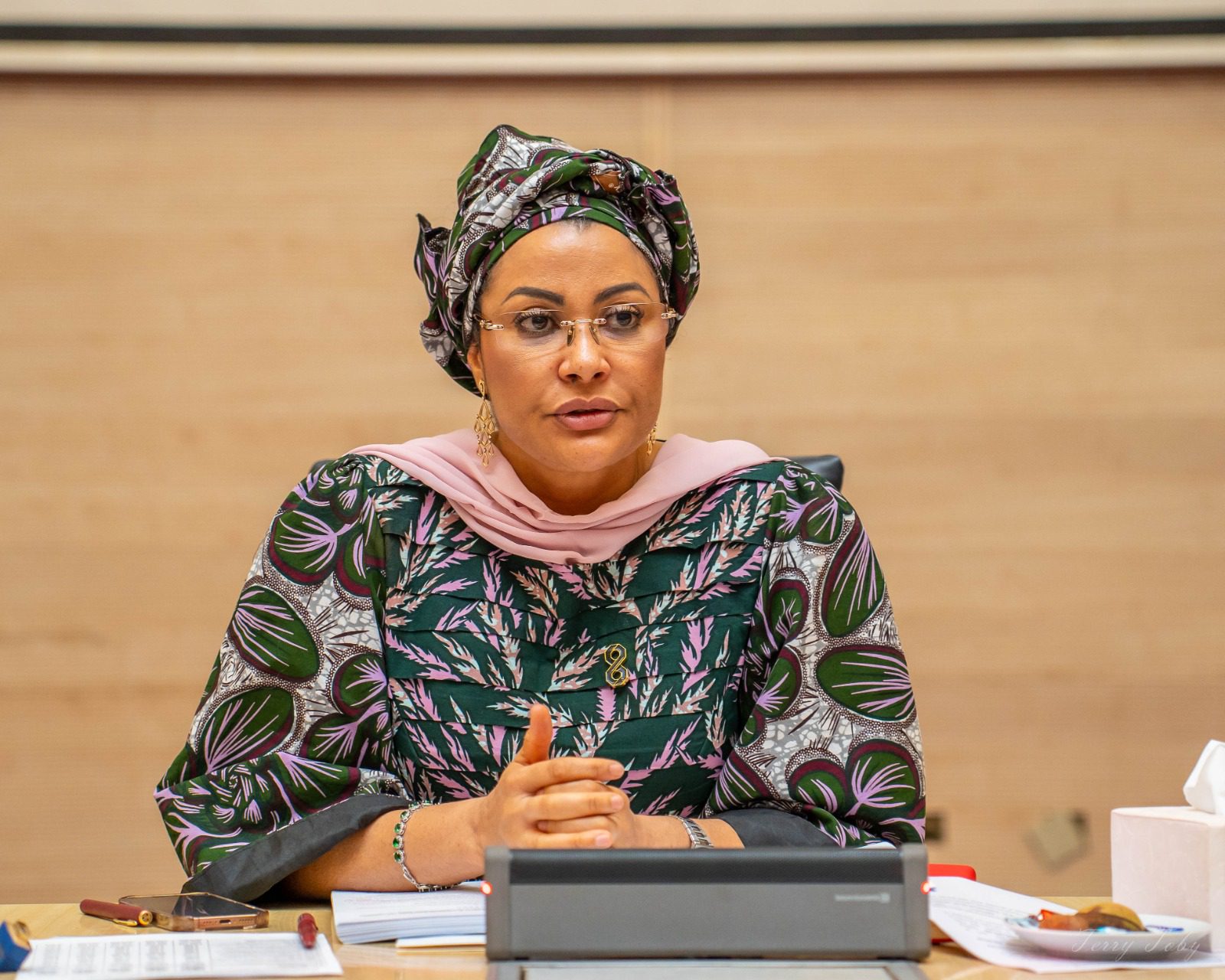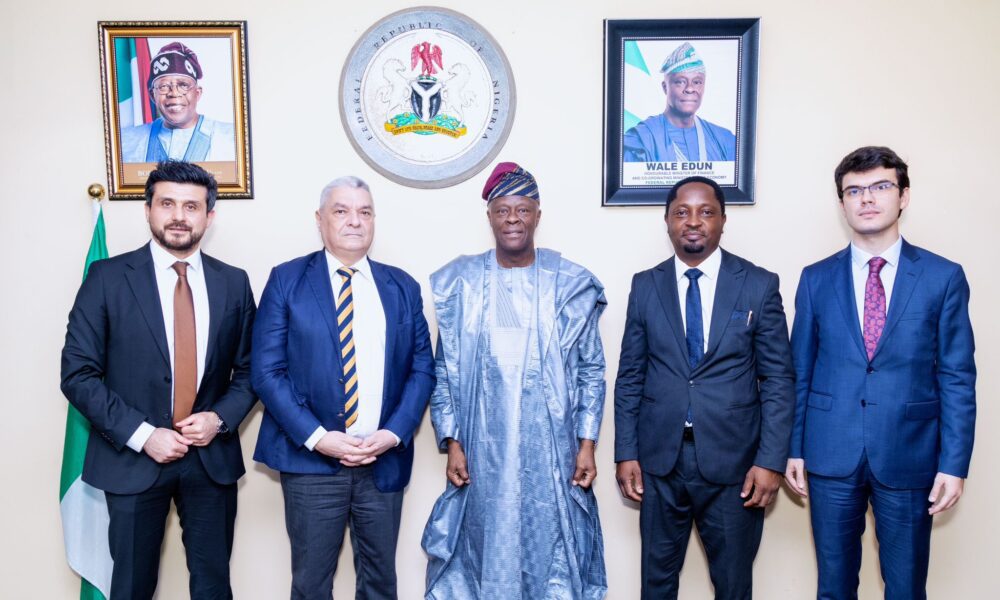Nigeria’s Finance Minister and Coordinating Minister of the Economy, Mr. Wale Edun, has met with a high-level delegation from the African Development Bank (AfDB) at his office in Abuja with the agenda to drive sustainable economic growth and development
The delegation, led by Dr. Abdul Kamara, Director General for Nigeria at the AfDB, engaged in discussions about various potential areas for collaboration between the Ministry of Finance and the AfDB.
Director of Information and Public Relations, Mohammed Manga, in a statment issued on Wednesday indicated that the meeting, held on September 18, 2024, is focused on initiatives aimed at strengthening food security in Nigeria, with particular attention to the Special Agro-Industrial Processing Zones (SAPZ) project.
According to the statement, Edun emphasized the crucial role of the AfDB’s funding and technical expertise, especially as Nigeria approaches a significant harvest season vital for food security and economic stability.
During the discussion, Dr. Kamara lauded President Bola Ahmed Tinubu’s economic reforms, acknowledging their importance in addressing Nigeria’s current economic challenges.
On behalf of the AfDB President, Dr. Akinwumi Adesina, Dr. Kamara also extended condolences for the recent flooding in Maiduguri, assuring the Bank’s readiness to provide support in mitigating the disaster’s effects.

The meeting was attended by representatives from both the AfDB and the Ministry of Finance, including Linda Amadi, Orison Amu, George N.S., and Onyoh Ajibola.
The visit according to the statement underscored the AfDB’s commitment to supporting Nigeria’s economic development and highlights the importance of international cooperation in navigating challenges related to food security and economic growth.
The AfDB’s endorsement of President Tinubu’s economic reforms signals a significant milestone for Nigeria as it seeks to enhance its economic stability. The collaboration between the Ministry of Finance and the AfDB is expected to play a vital role in shaping the country’s economic future.
This partnership not only reinforces the importance of strategic international cooperation but also sets the stage for future engagements aimed at addressing critical issues affecting Nigeria’s economy.




